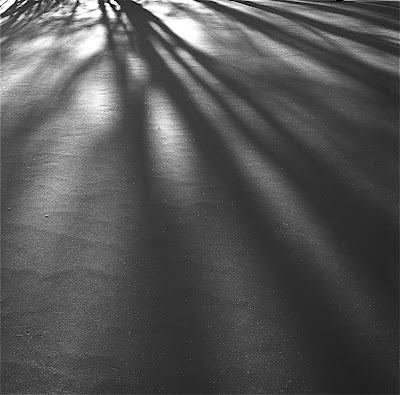
my dad died fourty-nine days ago. i don't know how or even why. it doesn't make sense to me. my intuition is that he needed to move on. i wasn't as prepared for his transition as he was. he had done a fair bit of work over the last year to prepare himself. but then death is a mystery. an apparent ending that doesn't necessarily resolve all of what went before it.
being an ending, perhaps it better describes the beginning of what is to be becoming for the spirit that has finished its time here.
those who know something of buddhism and the rituals and ceremonies connected to the flying away of a soul will be aware that this day marks the end of the prayer cycle begun for my dad’s soul on december sixth. these prayers have been spoken by buddhists that my dad was connected with in cobourg, toronto and tibet.
i am not a buddhist myself, although i’m aware of some of the buddha’s teachings and buddhist philosophy. recognizing my need to understand or at least to be aware of the buddhist approach to dying and death, i took it upon myself to learn some of what my dad worked towards and anticipated in his passage from the body he inhabited as garry, my dad.

here is what i have found.
the buddha taught that we should always keep in mind the impermanence of life. i think of the
guitar craft aphorism “there are few things as convincing as death to remind us of the quality with which we live our life,” as i write this.
living with the knowledge that we will die is difficult - but accepting an obvious and irrefutable truth often is.
for the buddhist, death is not the end of life. it is the end of the body we use to carry us through this life. our spirit remains and seeks out attachment to a new body and a new life. where the spirit is reborn is a reflection of the past and especially of the accumulation of all the positive and negative actions which result in what is called karma (cause and effect).
karma is such a commonly used term nowadays that even my own students and children have something of a sense of its relevance to their own lives. according to buddhists, our lives and all that occurs in our lives is a result of karma. every action creates a new karma, this karma or action is created with our body, our speech or our mind and this action leaves a subtle imprint on our mind which has the potential to become future happiness or future suffering, depending on whether the action was positive or negative.
at the point of death, whatever karma the person has accumulated decides which of six realms the spirit is reborn into: according to buddhists, if a human does not obtain nirvana or enlightenment, then they cannot escape the cycle of death and rebirth and are reborn into one of the six possible states beyond this our present life, these being in order from the highest to lowest;
heaven. in buddhism there are thirty seven different levels of heaven where beings experience peace and long lasting happiness.
human life. in buddhism, beings can be reborn into human life over and over, either wealthy or poor, beautiful or not, and of course into every other state imaginable. what we get is a result of the karma that we have brought with us from previous existences.
asura. a spiritual state of demi-gods but not the happy state experienced by the gods in the heavens above this state. the demi-gods are consumed with jealousy, because unlike humans, they can clearly see the superior situation of the gods in the heavens above them.
hungry ghost. this spiritual realm is for those who committed excessive amounts of evil deeds and who are obsessed with finding food and drink which they cannot experience and thus remain unsatisfied. they exhaust themselves in their constant fruitless searching.
animals. this realm is visible to humans and it is where the spirits of humans are reborn if they have killed animals or have committed a lot of other evil acts. animals do not have the freedom that humans would experience due to their being constantly hunted by humans, farmed, used in farming, and for entertainment.
hell. this realm is not visible to humans. beings born there experience much the same nastiness as those that a christian who believes in such a place might conceive of experiencing. those with a great deal of negative karma can remain in such places for eons of time.
buddhists believe that none of these places are permanent locations for us.
so, how do we prepare for death? it is very detailed in some ways and it is really simple in others: my own view is that the quality of living defines your understanding of the impermanence of this place and this experience of life in human form. just have a positive and compassionate outlook on life. always be aware of the impermanence of life and have a loving attitude towards all living things.
we all know that we’ll die eventually. we can see our death coming long before its arrival.
the bottom line is that if we bring happiness to other living things, we will be happy and so will they. if we create suffering, we will experience suffering either in this life or in a future one. it seems very simple.
that’s all that i know.


















.jpg)



